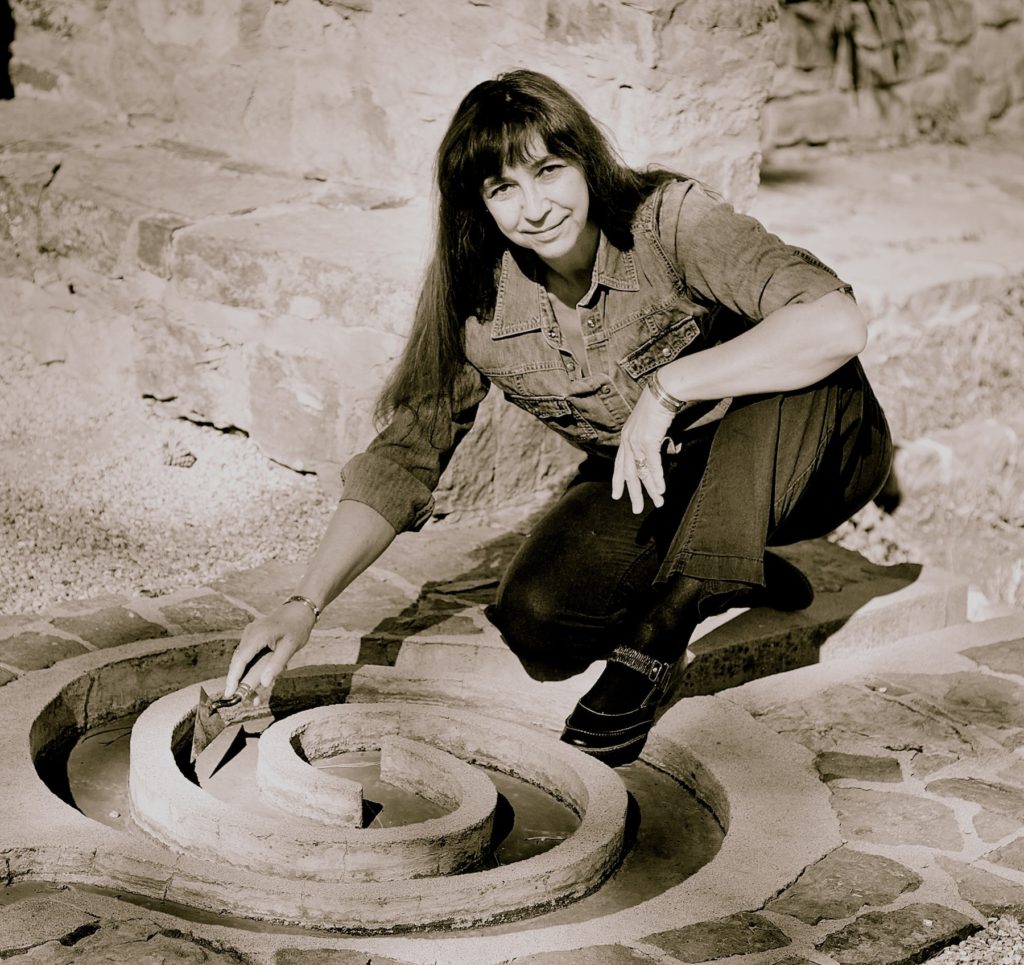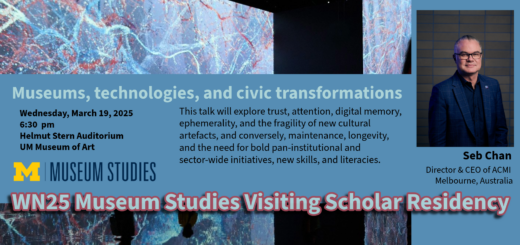Public programs facilitate dialogue between academics and professionals, informing scholarship and strengthening practice.
Multiple day conferences, year-long colloquia, individual lectures, “conversations” between individuals, hands-on workshops, and Museums at Noon talks featuring our graduate students all contribute to the remarkable richness of MSP offerings.
Video recordings of some MSP lectures are archived for viewing in our Media Gallery.

- This event has passed.
Listening to Object Witnesses: Decolonizing Research in Museum Collections
March 10, 2020 @ 6:30 pm - 7:30 pm
Presentation by Dr. Margaret M. Bruchac
How do Indigenous objects in museum collections speak to those who collect, curate, observe, and claim them? The observable materials and patterns of construction obviously reflect particular ecosystems, cultures, and technologies, but do these objects also retain memories of the artisans who created them? Do they wield more than just imagined meaning or distributed agency? In this talk, Dr. Bruchac discusses strategies for recovering object histories through material analyses, consultation, and critical re-assessments of imposed museological categories (e.g., art, artifact, utilitarian, etc.) that may have distanced objects from their origins and isolated them from others like themselves. Case histories will feature new research into iconic creations – such as a 17th century wooden war club embedded with re-purposed wampum beads, and a shell bead wampum belt with a single glass bead – that function as “object witnesses” to entangled colonial settler/Indigenous encounters. Through her practice of “reverse ethnography,” Bruchac will reveal how, in many cases, memories can be reawakened when otherwise mysterious objects are reconnected with the stories, ecosystems, knowledges, and communities that created them. Object histories can also be recovered by tracking the desires and actions of non-Indigenous curators and collectors who transported these objects and stories to physically and conceptually distant locales.
Dr. Margaret M. Bruchac is an Associate Professor of Anthropology, Coordinator of Native American and Indigenous Studies, and Associate Faculty in the Penn Cultural Heritage Center at the University of Pennsylvania. She is also a consultant to the Center for Native American and Indigenous Research at the American Philosophical Society, and Director of “The Wampum Trail,” a restorative research project designed to reconnect wampum belts in museum collections with their related Indigenous communities. Bruchac is co-editor, with Siobhan Hart and H. Martin Wobst, of “Indigenous Archaeologies: A Reader in Decolonization” (Left Coast Press 2010). Her new book – “Savage Kin: Indigenous Informants and American Anthropologists” (University of Arizona Press 2018) – was the winner of the 2018 Council for Museum Anthropology Book Award.
March 10 at 6:30 pm
UM Museum of Art, Helmut Stern Auditorium
Co-sponsored by the Department of American Culture; Eisenberg Institute for Historical Studies; LSA/Great Lakes Theme Semester; Native American and Indigenous Student Interest Group; Native American Studies Program; Office of Diversity, Equity & Inclusion; Program in Science, Technology and Society (STS); UM Museum of Anthropological Archaeology; UM Office of Research



